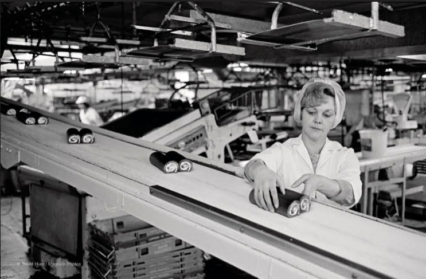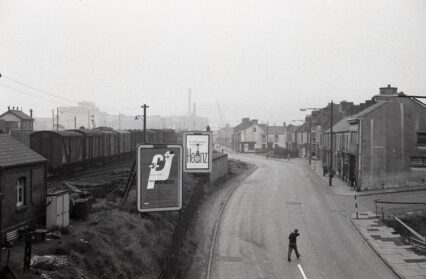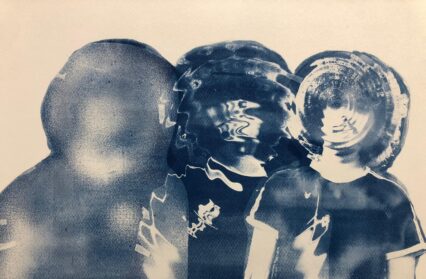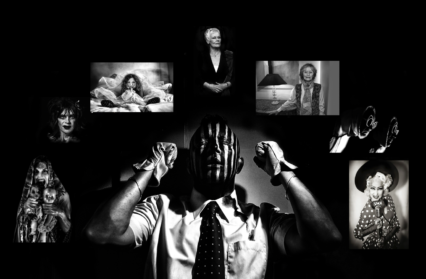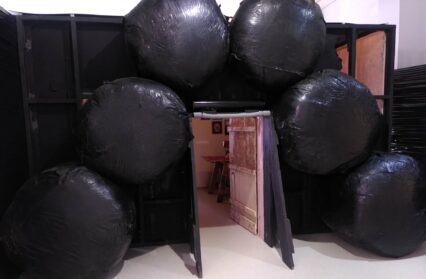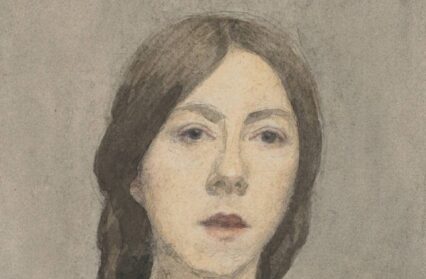Alexa Price reviews Newport, an exhibition of David Hurn’s photography currently showing at Ffoto Newport, the collection taking a closer look at a powerful community seen through the lens of the latter decades of the twentieth century.
David Hurn’s photography offers testament to the lively city of Newport, with an exhibition concerned with the city’s identity and community. While the majority of photographs on display were taken over the course of the 1970s and 1980s – coinciding with the time Hurn taught the art of documentary photography in Newport – the life in these images still feels as raw and relevant decades later. Hurn’s impact on the community is readily apparent at Ffoto Newport, with many an attendee recognising faces from eras passed. Aptly, community is the thread which binds together the eclecticism in Hurn’s photography; it focuses on Newport not as a city, but a home. A fact which, walking around the gallery, conjures the sense that the exhibition is equally a reunion of old friends as an artistic experience.
The themes within this collection are varied: domesticity, work, sport, change and protest. Every theme, regardless of subject, is packed with emotion and – many years on – the nostalgic tint of sentimentality. In black and white, the images are lent a sense of both timelessness and continuity, inspiring natural reflection on the consistency of community in Newport. The monotone colours also provide a natural juxtaposition to the lively range of themes. Here, Newport holds the spotlight with ease, but it is the omnipresence of Hurn as the spectator – the life around him captured in vivid shades – which really imbues them with an authentic sense of humanity at their core.
Hurn, as a citizen of Newport at the time, was certainly no outsider to the events documented. A photo depicting crowds of people following the Welsh Assembly Vote in 1997 is particularly striking. Contextually, the nation was split and that schism is represented carefully here, a visual symbol of something beyond the usual parameters of the left and right divide. In a similar vein, the capturing of a student protest taken in 1973 shows the subtleties which can convey success or failure, happiness or defeat; the students seeming downtrodden in comparison to the animation populating the crowds of the Assembly Vote. Contrast seems a natural occupant of Hurn’s photography, no corner of society goes unseen and the feeling of togetherness is in equal parts warming and integral. While many of the photos don’t feel so dethatched from today, others – such as the Bakers Strike in 1973 – capture moments which feel equal parts alien and fascinating viewed through the removal of nearly fifty years later.
If there’s a prevailing message to this exhibition it is that of the intimate closeness of a small city – one which binds the past to the present, the community feeling like a tangible thread which remains unshakable. Vibrant, too, are the characters displayed. There is a palpable energy of fun, of finding the best in things and making the most of the moment – indeed, this may be something Hurn passed onto his students. Hurn reminds us that inspiration need not be so elusive, or something sought in more romantic quarters, but instead a sense of something palpable and connected. Real inspiration can be as simple as grasping the moment in front of us.
David Hurn’s Newport is showing at Ffoto Newport until 17th June.


